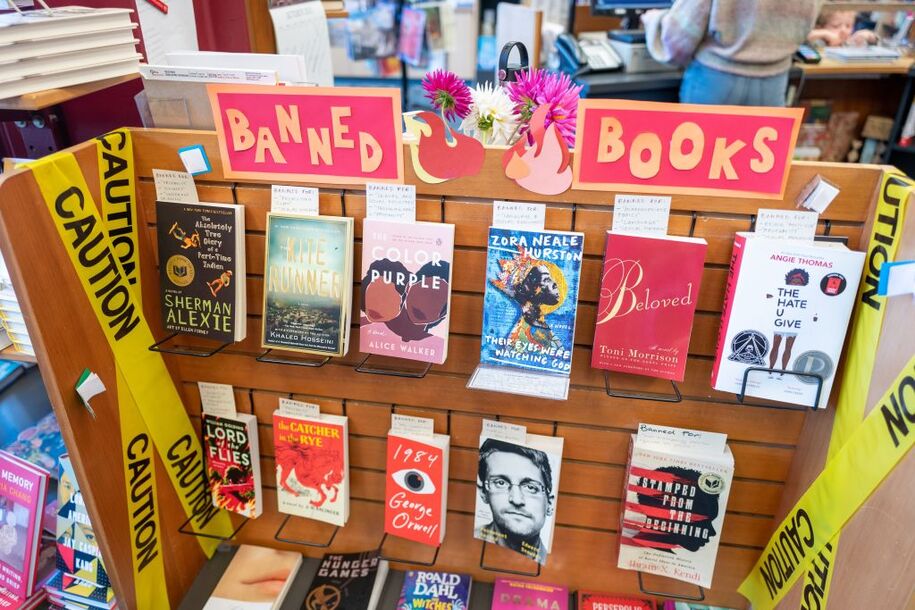Republican lawmakers in Florida have implemented a “parental rights” law that bans certain books highlighting racism and advocating tolerance of sexual identity in schools. However, Firestorm Books, a bookstore in Asheville, North Carolina, has found a way to challenge this censorship and intolerance. They obtained over 22,000 books that were rejected under the law and are now sending them back to eager young readers in Florida. The initiative, called “Banned Books Back!,” allows anyone to request these banned books for free. The books include titles such as “Other Words for Home” by Jasmine Warga and “Memphis, Martin, and the Mountaintop: The Sanitation Strike of 1968” by Alice Faye Duncan. Firestorm Books is also including surprise gifts in the boxes, such as stickers and coloring book pamphlets, as an act of solidarity and to contribute to a broader antifascist struggle. The bookstore’s efforts aim to counter the attacks on reproductive and gender-affirming healthcare and the escalating violence against queer and trans youth.
The act of banning books in the age of the internet seems self-defeating, as it only increases students’ curiosity and interest in reading the banned titles. Banning books is a way for Republican lawmakers to score political points with ignorant or intolerant constituents. However, the broader goal behind these book-banning laws is to weaken and eventually destroy the public education system. By draining resources from schools and intimidating teachers, book bans serve to undermine public education. Despite these efforts, books will continue to be read, regardless of conservative opposition.
In the Soviet Union, book-banning was also a common practice, but human ingenuity allowed authors like Alexander Solzhenitsyn to preserve and retain their thoughts. Solzhenitsyn wrote about his experiences in the Soviet labor camp system, known as the Gulag Archipelago, on small scraps of paper. He would memorize the words and burn the scraps to escape detection by the oppressive regime. His work was banned in the Soviet Union but was published clandestinely and passed along to readers. It was not widely published in the Soviet Union until 1989.
The actions of Firestorm Books in challenging book bans in Florida echo this spirit of resistance. While they may not face the same level of oppression as the KGB, their efforts serve to counter the censorship and intolerance imposed by Republican lawmakers. By distributing the rejected books back to Florida readers, Firestorm Books is empowering young people and advocating for freedom of expression and diversity.
Book bans are a pointless and wasteful exercise that burden public schools with unnecessary administrative work. These bans impose questionable notions of morality on students and hinder their access to important literature. Through their “Banned Books Back!” initiative, Firestorm Books is not only providing access to banned books but also fostering a sense of community and solidarity among readers. Their efforts highlight the importance of preserving freedom of thought and challenging oppressive systems, whether in the Soviet Union or modern-day America.









